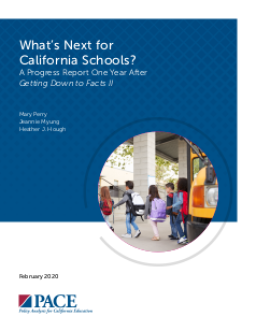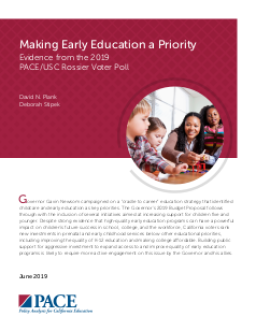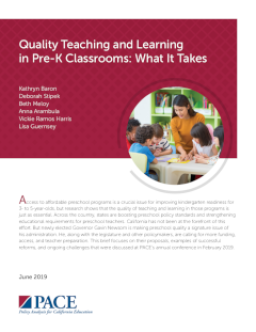Getting Down To Facts II

Getting Down To Facts II is a research initiative that provides in-depth analysis of California’s education system as of 2018 and looks at what is working well and where improvement is still needed. Over one hundred researchers from the nation’s leading academic institutions focused on four aspects of California education—student success, governance systems, personnel issues, and school finance. These studies resulted in 36 methodologically rigorous technical reports that span these four areas. Nineteen research briefs synthesize the main findings from the technical reports for a broader readership. Taken together, these research products help to build a common understanding of the performance of California’s PreK–12 school system and the opportunities for improvement. While this research is not intended to advocate specific policies, the findings provide evidence to inform the policy decisions that can ensure California continues to move in the right direction on behalf of all students in the state.







